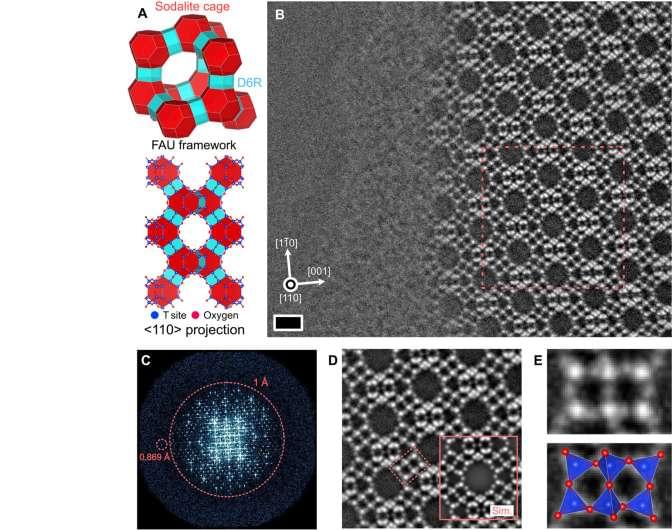Zeolites have unique porous atomic structures and are useful as catalysts, ion exchangers and molecular sieves. It is difficult to directly observe the local atomic structures of the material via electron microscopy due to low electron irradiation resistance. As a result, the fundamental property-structure relationships of the constructs remain unclear.
Recent developments of a low-electron dose imaging method known as optimum bright-field scanning transmission electron microscopy (OBF STEM) offers a method to reconstruct images with a high signal-to-noise ratio with high dose efficiency.
In this study, Kousuke Ooe and a team of scientists in engineering and nanoscience at the University of Tokyo and the Japan Fine Ceramics Center performed low-dose atomic resolution observations with the method to visualize atomic sites and their frameworks between two types of zeolites. The scientists observed the complex atomic structure of the twin-boundaries in a faujasite-type (FAU) zeolite to facilitate the characterization of local atomic structures across many electron beam-sensitive materials.









Comments are closed.